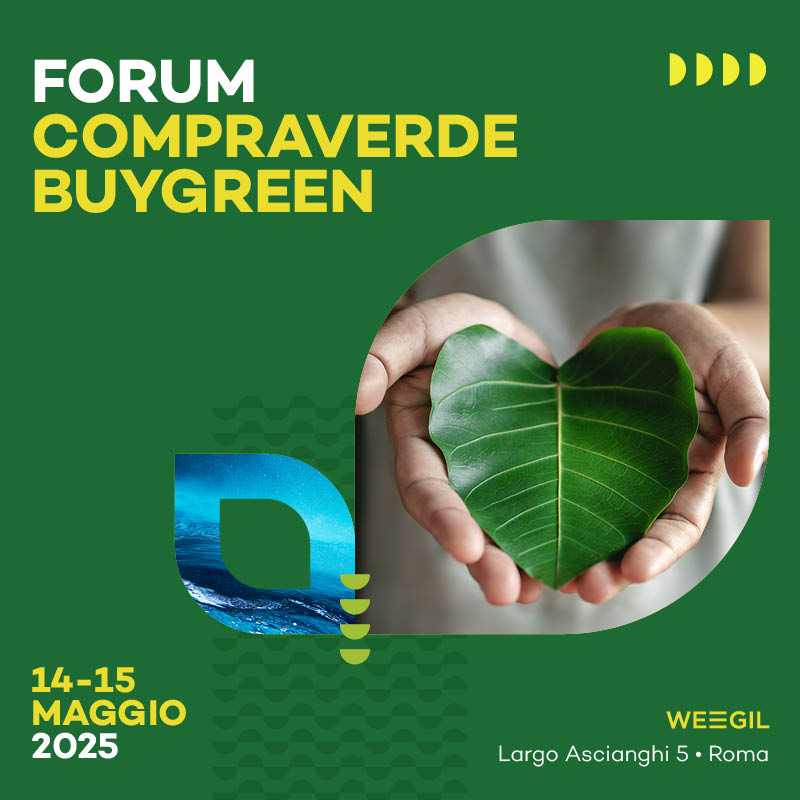The Mediterranean is warming at a rate twelve times faster than the global average.
This alarming data from the Intergovernmental Panel on Climate Change (IPCC) puts Italy at the center of a critical challenge. In 2024 alone, 351 extreme weather events were recorded in the country—a staggering 485% increase compared to 2015. Climate change is no longer a distant threat. It is already impacting our territories, communities, and businesses with increasing force.
In this context, slowing down—or worse, abandoning—the European Green Deal is simply not an option. Launched by the European Commission in December 2019, the Green Deal aims to make the EU the first climate-neutral continent by 2050. Turning away from it now would be not only irresponsible but also a strategic and industrial failure. The urgency is environmental, yes—but also economic and social. What we need is a green transition that is effective, fair, and grounded in reality. A transition that leaves no one behind—neither workers nor small businesses—and transforms the climate crisis into a true opportunity to revitalize Europe’s industrial landscape.
This is the core message behind Fondazione Ecosistemi’s proposal: the Buy European and Sustainable Act (BESA), which will be presented on May 14 at the opening of the Forum Compraverde Buygreen. This initiative is concrete, data-driven, and pragmatic, aiming to turn European public spending into a powerful engine of decarbonization, industrial innovation, and green jobs.
Green Public Procurement: a powerful yet underused lever
Public procurement accounts for roughly 15% of the EU’s GDP. Embedding binding environmental criteria into public tenders—through what’s known as Green Public Procurement (GPP)—can decisively influence market choices, steering production toward more sustainable, local, and innovative goods and services. According to a study by a network of international organizations supported by the European Climate Foundation, including Fondazione Ecosistemi, large-scale adoption of BESA in Italy could result in:
-
Annual CO₂ reductions of 2.2 million tons,
-
€8 billion redirected toward sustainable industrial activities,
-
More than 31,000 new low-impact jobs.
This is not a wishful projection—it’s a tangible impact. GPP has long been recognized by the European Commission as one of the most effective tools to decarbonize high-emission sectors like construction, transport, and agri-food, and to accelerate the green transition.
Building a network to measure impact and increase Europe-wide influence
To support the BESA and strengthen Italy’s voice in European negotiations, Fondazione Ecosistemi is launching a network of public administrations committed to sustainable European public procurement. The goal is to build a robust, shared database documenting the real-world impacts of GPP in Italy: avoided emissions, jobs created, innovation triggered. Currently, this data is collected in a fragmented way, making it hard to demonstrate the value of Italy’s strategy with concrete evidence.
Italy has the tools. Now it’s time for a step forward.
Italy was the first country in Europe to make the adoption of Minimum Environmental Criteria (CAM) mandatory in public tenders, back in 2016. Today, over 60% of contracting authorities apply them, and awareness of GPP is widespread. But as Fondazione Ecosistemi points out, it’s time to move from general principles to measurable results: clear emission thresholds, minimum EU content in procured goods, and well-defined environmental and geographical criteria.
A detailed analysis of over 100 Environmental Product Declarations (EPDs) across key sectors provides a snapshot of where Italy stands:
-
Steel: Italian steel is mostly produced using electric furnaces, often powered by renewables, with emission intensity ranging from 0.57 to 3.5 tCO₂/t. However, no domestic production yet meets the climate excellence benchmark of 0.5 tCO₂/t, as defined by the Carbone 4 study.
-
Aluminum: Entirely recycled in Italy, this sector generally stays below 4 tCO₂/t, already positioning itself as an environmental frontrunner.
-
Cement: Emissions range from 0.48 to 1.35 tCO₂/t, but few producers approach the 0.45 tCO₂/t target. Urgent innovation is needed, particularly in reducing clinker content.
-
Vehicles: EU content exceeds 85%, yet reliable traceability systems are lacking, and the use of low-carbon materials remains limited.
-
Renewables: Around 85–90% of photovoltaic panels installed in Italy are imported from outside the EU; for wind turbines, EU content is between 40% and 50%.
-
Collective Catering: A high-performing sector—69% of contracting authorities already apply CAM, and many local bodies have introduced plant-based meals, cutting emissions by over 30%.
A new European network for sustainable public procurement
To reinforce Italy’s leadership in the EU and build a solid evidence base, Fondazione Ecosistemi is creating the Network of Public Authorities for the BESA, with two main goals:
-
To share experiences and best practices among Italian and European public bodies,
-
To gather measurable data on the economic, environmental, and employment impacts of GPP—currently scattered and difficult to compare.
“Only when we can measure change, can we defend it and make it grow,” says Silvano Falocco, Director of Fondazione Ecosistemi. “We need solid numbers to influence the European negotiations and show that a fair transition is not only possible—it’s already underway. The Buy European and Sustainable Act is not a theoretical exercise. It’s a practical tool designed to address the shortcomings of today’s European reporting system—which includes over 1,100 indicators, often too complex for SMEs and public authorities—and to offer real answers to citizens, businesses, and communities. Italy has already proven to be a testing ground for transition. Now, it must become a leading voice in Europe, moving beyond rhetoric to deliver realistic, equitable, and ambitious solutions.”




